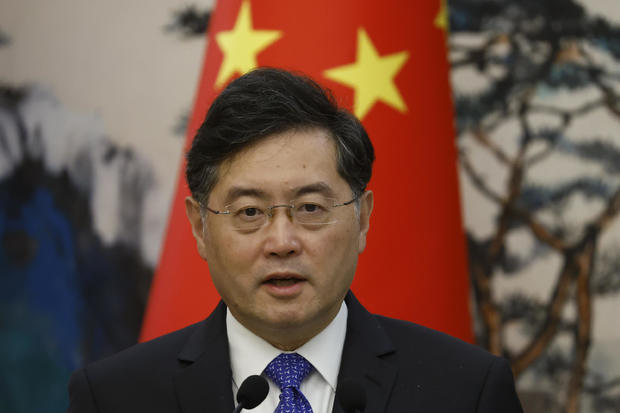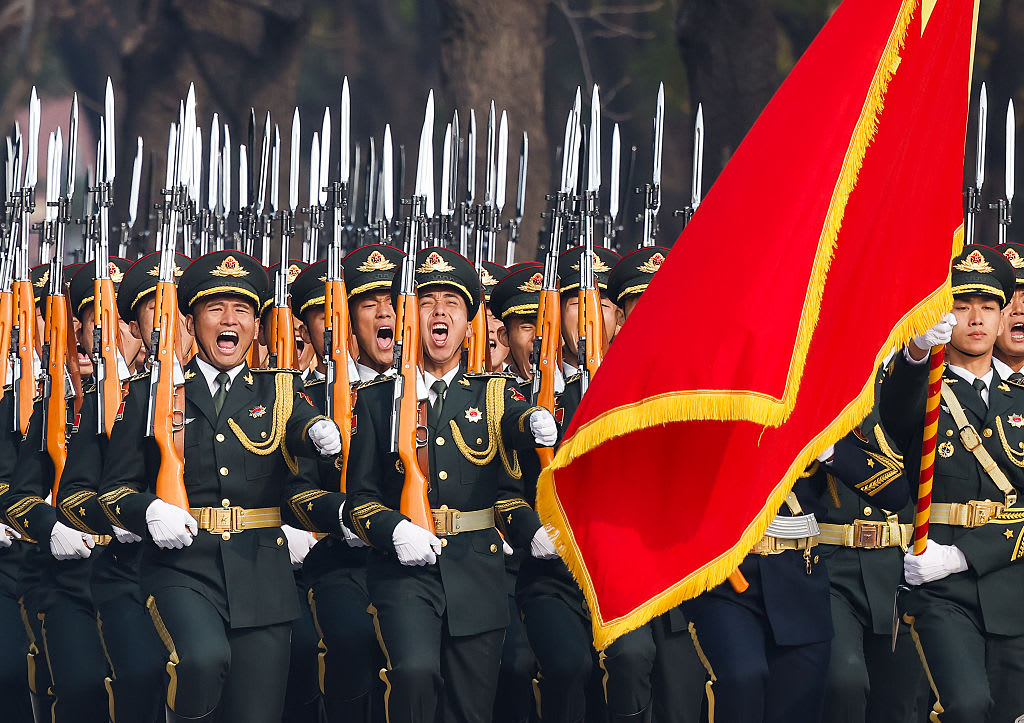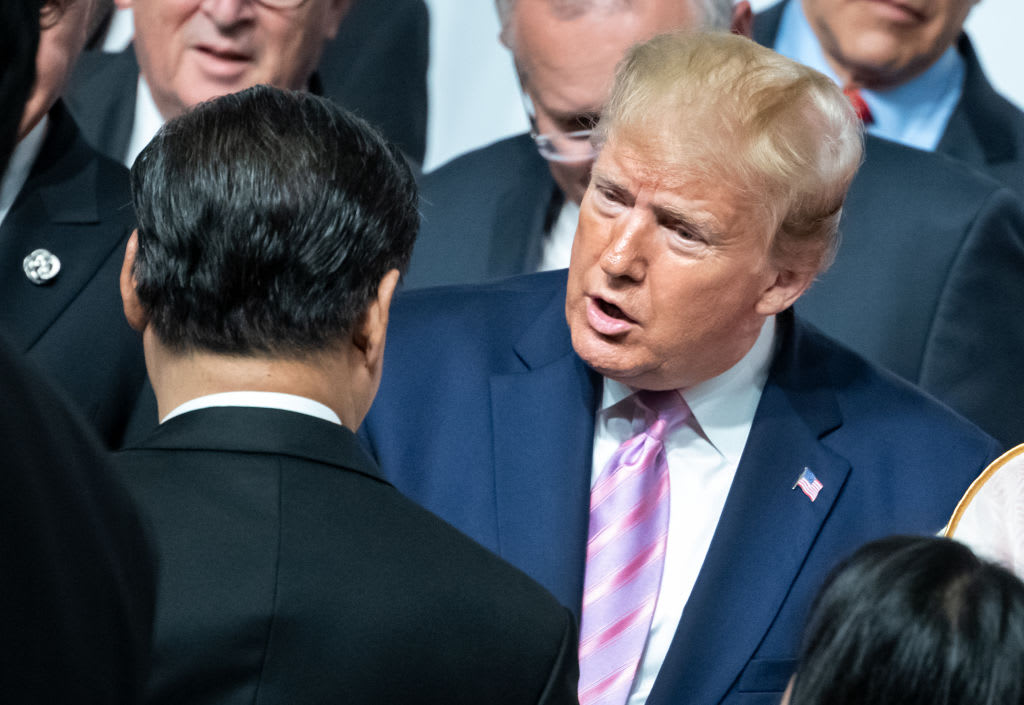China replaces Qin Gang as foreign minister after a month of unexplained absence and rumors
Shanghai — China's foreign minister Qin Gang was removed from office on Tuesday, a sudden and unexpected fall for a man whose rise through the diplomatic ranks was seen as evidence of his closeness to leader Xi Jinping. Qin — who had only been foreign minister since December — has not been seen in public for a month, missing several important official meetings and sending the rumor mill into overdrive.
China's foreign ministry had previously said "health reasons" were to blame for Qin's absence. But on Tuesday state media announced his replacement as foreign minister by his boss Wang Yi, without specifying a reason.
There has been an explosion of online intrigue, some of which claims Qin's absence was linked to an alleged affair with a prominent TV anchor.
Qin's promotion over more experienced candidates, first to U.S. ambassador and then to China's number 2 diplomat, was attributed to the trust placed in him by Xi directly.
"There is no clearer captain's pick in the current leadership than Qin," Neil Thomas, from the U.S. think tank Asia Society Policy Institute, told the Financial Times.
That makes his mysterious ousting all the more surprising.
"If Qin is removed, I would not be surprised if the reason given is health-related, no matter what is going on since anything discipline-related would reflect badly on Xi and his decision to break protocol to promote Qin," analyst Bill Bishop wrote in his Sinocism newsletter before the announcement.
Qin Gang's remarkable rise
Originally from the northeastern city of Tianjin, 57-year-old Qin has spent his whole career in China's diplomatic service.
He is married and has a son, according to the Chinese foreign ministry.
A fluent English speaker, he specialized in West European affairs and was sent to Britain three times, the last as a minister.
During his stints as foreign ministry spokesman, he became known for his caustic responses to difficult questions from journalists.
The Diplomat magazine called him "one of the first Chinese foreign ministry celebrities" for his memorable lines, such as when asked his opinion of U.S. rock band Guns N' Roses' album 'Chinese Democracy', he replied: "Not many people are fond of this kind of music because it's too loud and noisy. Besides, you are a mature adult, aren't you?"
qBut analysts say Qin's real break came when he entered Xi's direct orbit as chief of the foreign ministry's protocol department between 2014 and 2018.
That job involved organizing Xi's foreign trips and accompanying the leader on them.
He served as vice-foreign minister between 2018 and 2021, before becoming U.S. ambassador.
China's "Wolf Warrior" in Washington
is appointment to serve in Washington D.C. came at a crucially tense time in U.S.-China relations, despite Qin not having the country-specific expertise that had become the norm for the role over the last few decades.
Qin increased his visibility in Washington through public and media appearances, in which he unapologetically put forward China's geopolitical position.
He laid out a vision of China as a country that has little to learn from the West, saying Europeans and Americans — in particular the media — had never accepted the Chinese political system or the country's economic rise.
He gained a reputation as a "Wolf Warrior," a nickname given to Chinese diplomats who respond vehemently to Western nations they perceive as hostile, though he was seen as less of a loose cannon than some of his colleagues.
"Those of us in the press corps who have known Qin for years have seen a deft, wily player... who knows how to bend with the prevailing wind from Beijing," wrote Melinda Liu in a profile for Foreign Policy magazine.
It was perhaps that savviness that saw Qin promoted again to foreign minister in December.
Qin vanishes in "the utter opacity" of Chinese politics
He kept up a busy schedule after his appointment, visiting Africa, Europe and Central Asia as well as hosting foreign dignitaries in Beijing.
But Qin has not been seen in public since June 25, when he met Russia's deputy foreign minister Andrey Rudenko in Beijing.
It was his absence from a high-level ASEAN summit in Indonesia two weeks later that first raised eyebrows.
Qin's replacement, top foreign policy official Wang, took on some of his responsibilities in the meantime.
Asked repeatedly about Qin's situation, officials refused to give any information, insisting it was business as normal.
"Qin's disappearance is, if you like, a transparent example of the utter opacity of Chinese elite politics," tweeted the Lowy Institute's Richard McGregor.






